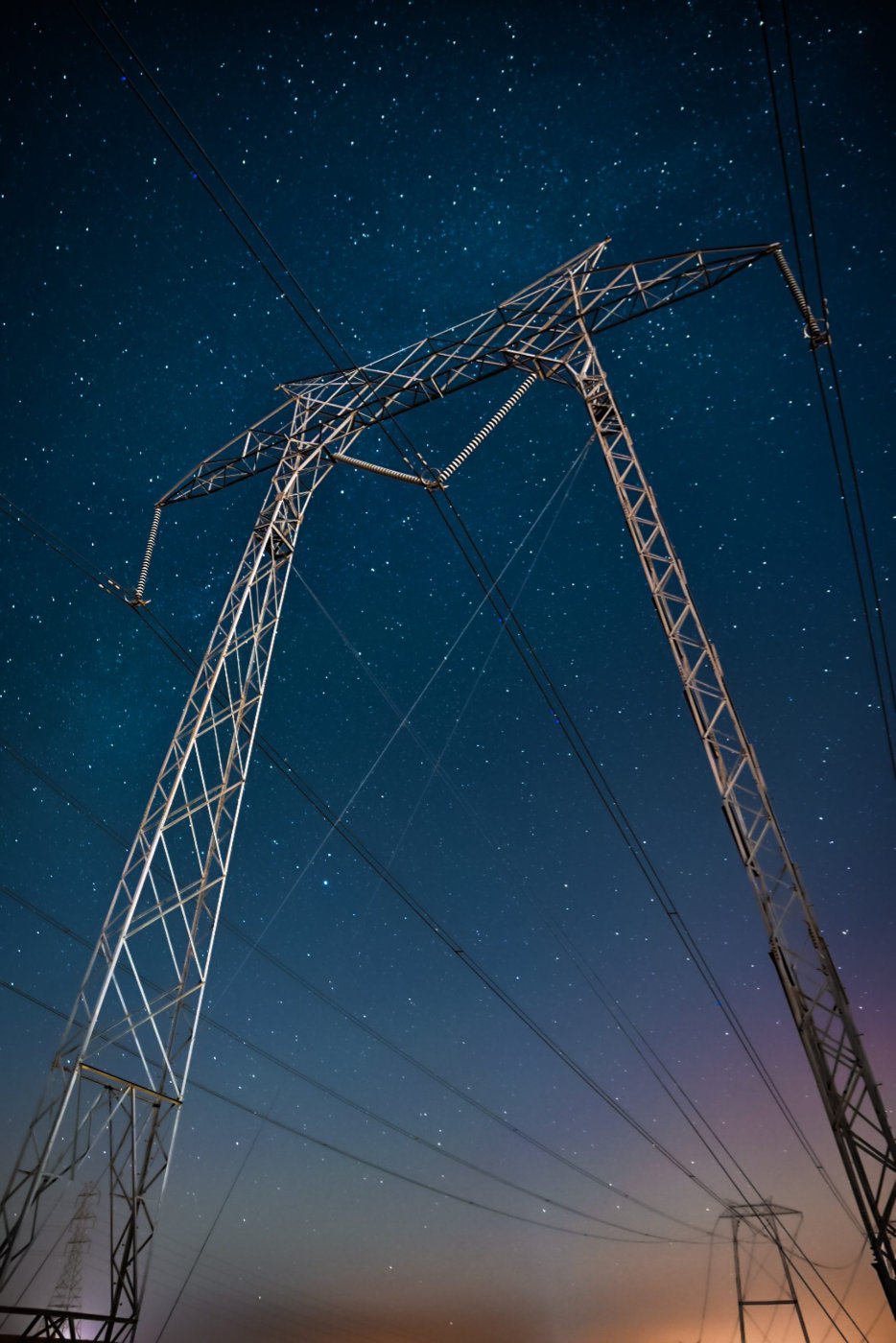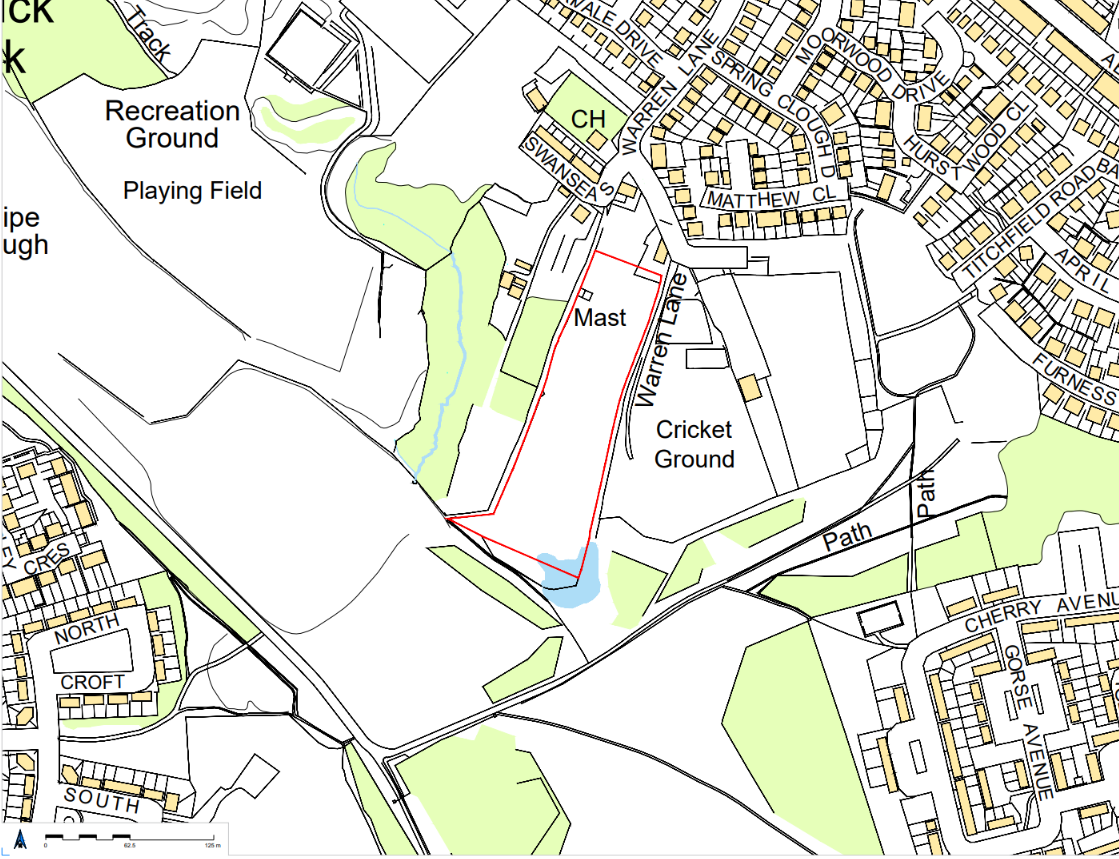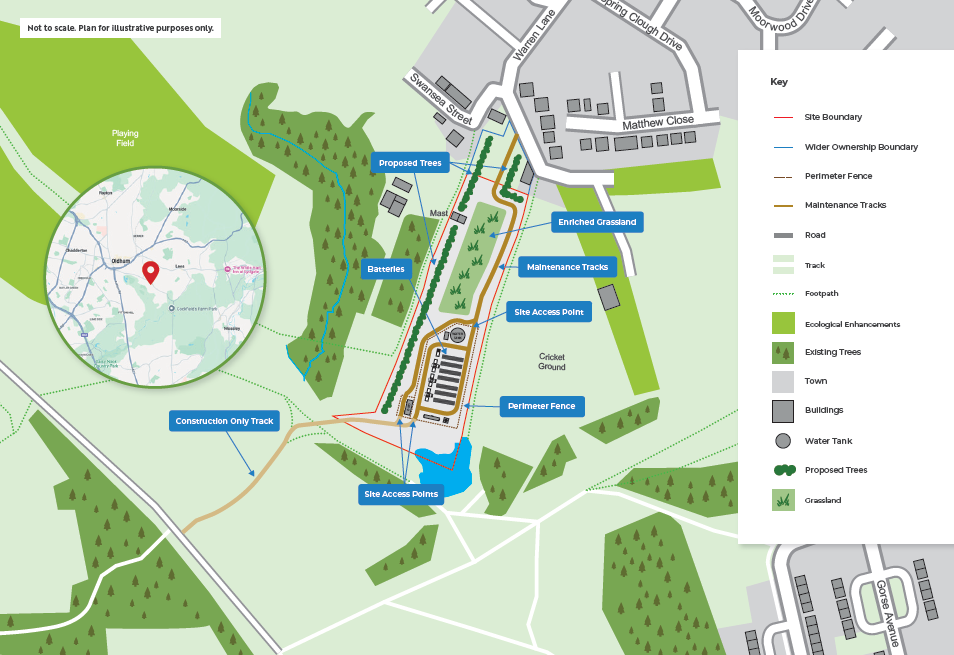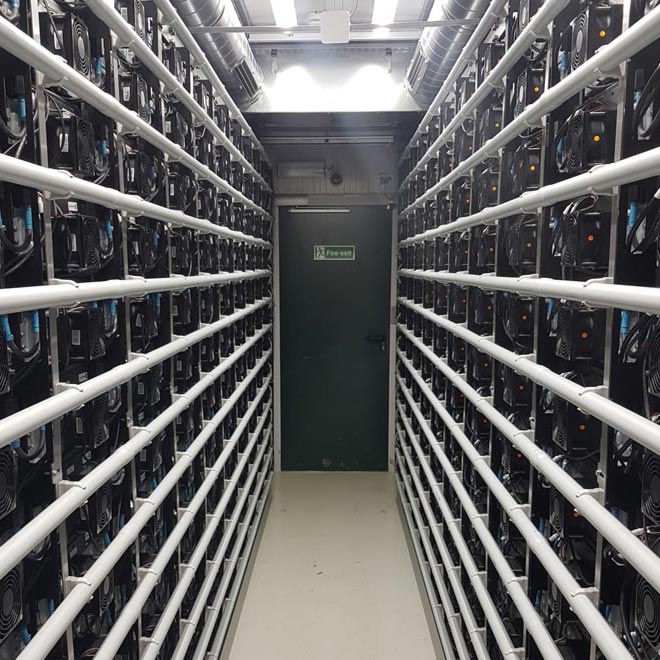Latest News: Renewable Connections has submitted a planning application to Oldham Metropolitan Borough Council for our proposed Warren Lane Battery Storage Facility. The application has been validated with reference: FUL/354740/25.
Warren Lane Battery Storage Facility
Renewable Connections is investigating the potential for a 27MW Battery Energy Storage System (BESS) on land to the south of Warren Lane, Oldham. Once operational, the BESS will enable energy from renewable generation sources such as solar and wind to be stored and redistributed as required.
- Battery storage has a key role to play in ensuring homes and businesses can be powered by renewable energy sources, even when the sun is not shining or when the wind is not blowing.
- Batteries can help to manage the peaks and troughs of energy demand, supporting a more stable and reliable national electricity grid that is capable of delivering the transition to decarbonised transport and heating needed to meet the country’s net zero goals.
- The UK Government estimates that the implementation of flexible technologies like battery energy storage systems could save the UK energy system up to £40 billion in operating costs by 2050, which will help to reduce individual energy bills – Battery storage boost to power greener electricity grid – GOV.UK (www.gov.uk)
We have submitted a planning application to Oldham Metropolitan Borough Council for the proposed Warren Lane Battery Storage Facility. The application has been validated with reference FUL/354740/25.
Prior to submitting the application we invited members of the public to attend a Virtual Q&A and feedback event on Wednesday 5th February 2025. Comments provided by the local community were taken into consideration and incorporated into the scheme where appropriate.

LOCATION
We have identified a site located on Land to the south of Warren Lane, Oldham. The site comprises low quality grassland and extends to an area of approximately 1.3 hectares. The site is enclosed by hedgerow and trees, Warren Lane to the north and the new Northern Routes development to the west and south.


OUR PROPOSALS
Once installed, the BESS would have capacity for up to 27MW of electricity storage and will be operational for up to 40 years. After this time, the installation will be removed in its entirety and the land will be restored to its previous use.
The Warren Lane BESS facility will include state-of-the-art Lithium Iron Phosphate (LFP) battery technology, comprising battery storage modules aligned in rows supported by transformer and inverter platforms. The maximum height of the battery storage modules will be less than 3m.
The transformer and inverter platforms will be connected via underground cables, as will the point of connection, to the existing Greenhill Bulk Supply Point (BSP). A 2.1m high perimeter security fence will enclose the site, and will include free-standing CCTV cameras with infrared lighting pointing inwards towards the site only.
PROJECT TIMELINE
STAGE 1
Site selection
Winter 2024
STAGE 2
Preliminary Surveys
Spring 2024
STAGE 3
Pre-application
Autumn 2024
STAGE 4
Community Consultation
Spring 2025
STAGE 5
Planning Application
Summer 2025
STAGE 6
Construction
Summer 2026
THE NEED FOR THE PROJECT
Following the Government’s declaration of an “Environment and Climate Emergency” in May 2019, the Committee on Climate Change (CCC) advised that to meet ‘Net Zero’ targets, the UK will require substantial amounts of new, low carbon power sources to be built before 2050, up to four times that of today’s levels.
Oldham Metropolitan Borough Council declared their own climate emergency in September of 2019 and subsequently adopted the Oldham Green New Deal Strategy in March 2020. The Strategy’s objective is to ‘Future-proof the regeneration of the borough by establishing Oldham as an exemplar Green City on energy, carbon, water and green infrastructure’. In line with these targets, Warren Lane BESS can help support delivery of the Council’s climate objectives and work towards a carbon neutral energy system.
FAQ’s
How do battery energy storage systems work?
Battery Energy Storage Systems (BESS) can be charged by electricity generated from renewable energy, such as wind and solar power, which only produce energy under certain conditions. BESS use intelligent software to co-ordinate energy production and to decide when to store or release energy to the national grid to meet peak demand. This improves the stability of the grid network and allows stored renewable energy to be used even when the conditions for generation are not being met.
Why not use nuclear power instead of battery storage?
Whilst nuclear power stations are able to generate a large and consistent amount of electricity for baseload operation, they are very expensive to build and operate and are unable to react quickly to fast-changing grid fluctuations. On the other hand, BESS is able to respond to changes in the grid quickly and makes it possible for cheap renewable energy to be used during times when it wouldn’t normally be possible. For this reason, to improve the stability of the grid network and to facilitate the transition to net zero it makes more sense to invest in BESS rather than nuclear power.
Why this location?
This site has been identified following an extensive site selection process which considered environmental designations, local electricity network access and capacity, the physical characteristics of the site, and the need for a supportive landowner.
Will there be any impacts on local roads?
For a period of approximately 16-20 weeks during construction, there will be deliveries of equipment to site. Renewable Connections will put in place measures to manage impacts of construction traffic and these measures will be included in a Construction Traffic Management Plan that will submitted with the planning application. There will be infrequent maintenance visits to the site during operation.
Will there be any permanent impact?
No – the battery site would operate for a period of up to 40 years, following which the site would be fully decommissioned and returned to its pre-existing use.
Do batteries pose a health risk?
No – LFP batteries (or Lithium Iron Phosphate) will be used in the Warren Lane BESS. LFP batteries are thermally and chemically stable, with no risk of fumes or gas leaks. They are made of abundant, non-toxic materials like iron, copper and graphite so have a lower environmental impact from mining, processing and recycling.
Are the batteries noisy?
No – while BESS’ do generate some low-level electrical noise from the inverter, switchgear, and fan equipment this noise is not perceptible beyond the site boundaries and would not have an adverse impact on any nearby residential receptors. To demonstrate this, a Noise Impact Assessment will be submitted as part of any future planning application.
Are the batteries safe?
The battery storage modules are designed to have a very low risk of failure, and an even lower risk that any failure would result in a fire. In the unlikely event that a fire does occur, both fire detection and fire prevention equipment is installed in all the battery storage modules to ensure that any fires remain under control. All modules will also be equipped with an inert gas suppression system designed to extinguish any fires that are detected by the monitoring system.
GET IN TOUCH
warrenlanebattery@renewableconnections.co.uk
0800 254 5011
Warren Lane BESS,
20 Central Avenue,
St Andrews Business Park,
Norwich,
NR7 0HR
Renewable Connections is committed to respecting your privacy and to complying with UK data protection and privacy laws. Our privacy policy explains how we collect, use, share and protect personal information
